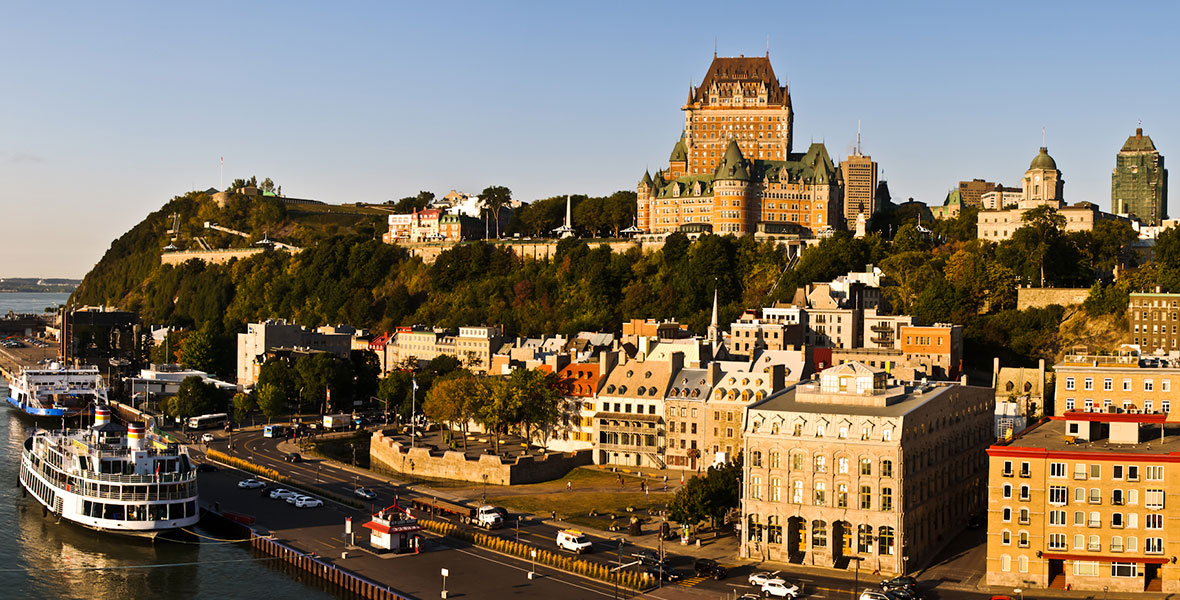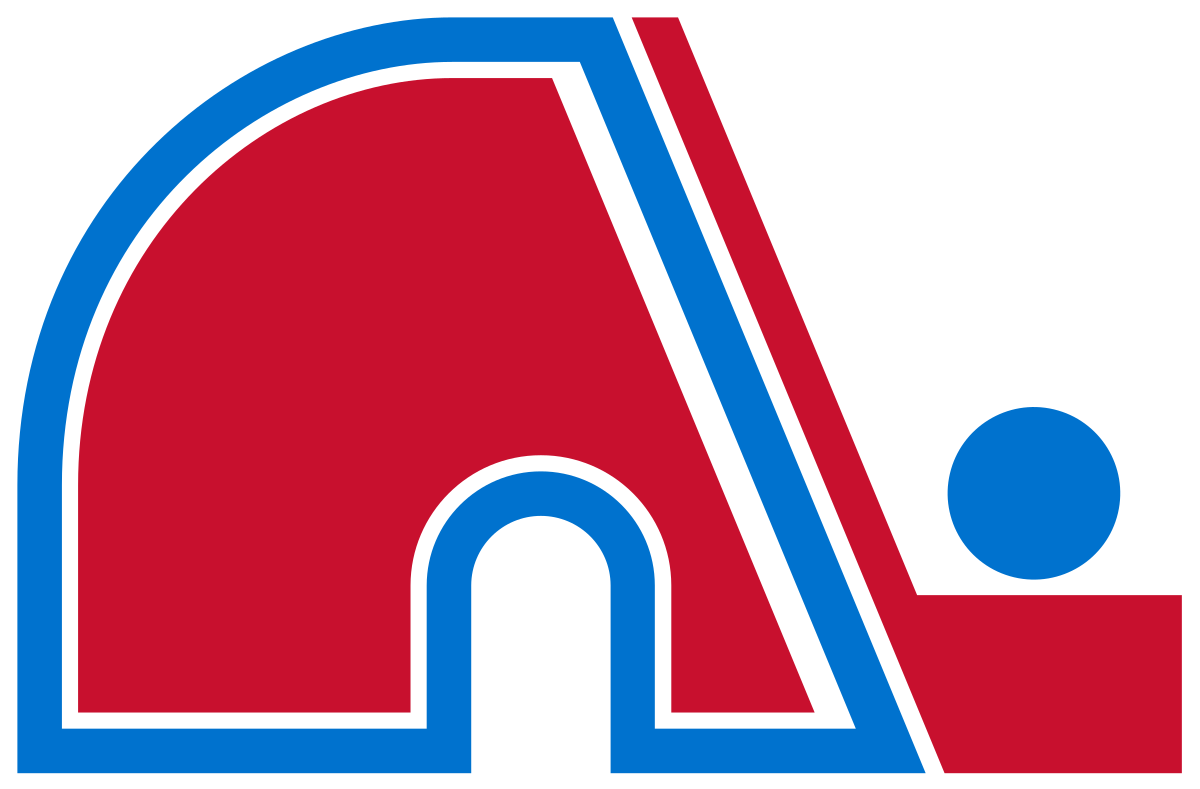Quebec City
 While the Vegas Golden Knights continue to wheel and deal and fill out their roster, rabid hockey fans in Quebec City continue to wait for the return of the NHL.
While the Vegas Golden Knights continue to wheel and deal and fill out their roster, rabid hockey fans in Quebec City continue to wait for the return of the NHL.
Arena - The good people of Quebec paid $370 million in tax money for an NHL arena a few years back, and they’re still waiting for a team to return. Patiently. As they do, the words of NHL commissioner Gary Bettman continue to echo in their ears. He never said the NHL was turning them down. He just said expansion was being “deferred, at least for the time being.” You heard that too, right? “They’re on our radar screen for another time, perhaps,” he said. “Another day when circumstances allow.” So, you’re saying there’s a chance!
Meanwhile, the Videotron Centre, an 18,259-seat arena, sits vacant most nights when the Quebec Remparts aren’t playing. Most nights. There was, of course, President’s Choice SuperDogs, which, according to the promotional material, is The Most Fun on Four Legs, so it has to be true, though the pictures just show a bunch of mutts jumping over stuff and skipping rope with humans. There was a one-night only appearance by Messmer, who apparently is so big in Quebec he goes by one name. On that night, he’ll try to break his own world record (we’re just going to take his word on that one) that he set last February in France when he simultaneously hypnotized 548 people in less than four minutes. This summer will see concerts from the likes of Iron Maiden, Keith Urban, and Bruno Mars.
If none of that attracts you, for just $4,400 you can rent the ice for two hours.
“It is possible for garage league teams, groups of friends and businesses to enjoy your favorite sport on the ice of the Videotron Centre,” the building’s website claims. And the Quebec Peewee Tournament should be exciting.
Hockey History - If you think this might be the most depressing, most inequitable, most ass-backwards thing you could ever conceive, you can’t be alone. When the NHL decided to accept Bill Foley’s $500 million in expansion money last June, it not only eschewed a market that did everything asked of it by the league, it also left waiting a hockey-mad city. And when we say hockey mad, we mean it.
“Quebec City’s love for hockey is close to mental illness,” said Jerome Landry, a local radio personality and one of the founders of Nordiques Nation, a fan club that boasted 90,000 members when it was established six years ago. “We’re completely crazy about the sport. I think we can be the Green Bay of hockey.”
So why not Quebec City? Well, when the NHL expanded in June one of the main reasons for choosing Las Vegas instead was that adding another team in the East while ignoring the West would have created a greater geographical imbalance between the two conferences, information that might have been useful to Quebec City before the process began. Bettman also cited the volatile Canadian dollar and the fact admitting two expansion teams at once would have strained the rosters of the 30 existing teams. Funny, that didn’t seem to be an issue when the league admitted Florida and Anaheim in time for the 1993-94 season and Minnesota and Columbus seven years later.
Quebec City has been home to two NHL hockey teams. The first, the Quebec Bulldogs, lasted from 1878 to 1920. They won the Stanley Cup in 1912 and ’13 and placed eight players in the Hall of Fame after which they moved to Hamilton, Ontario. The second, the Quebec Nordiques, called Quebec City their home from 1972 to 1979 in the World Hockey Association, and from then on to 1995 as a National Hockey League team, at which point they moved to Denver to become the Colorado Avalanche. Part of the challenge for both the Bulldogs and Nordiques was that Quebec City was by far the smallest market in the NHL. According to the Television Bureau of Canada, a prospective Quebec City team would now be in the league's second-smallest market, ahead of only Winnipeg. However, Silver's analysis suggested that the Quebec City market was comparable to those of Winnipeg, Buffalo, and Washington, D.C. in terms of avid hockey fans. The 1979 defeat by a single vote of a merger agreement between the NHL and the rival World Hockey Association that would have resulted in three Canadian WHA franchises (the Edmonton Oilers, Quebec Nordiques and Winnipeg Jets) joining the NHL led to a mass boycott of Molson products across Canada. In a second vote, the Montreal Canadiens, owned by Molson, reversed their position, allowing the Oilers, Nordiques (who were owned at the time by then-rival brewery Carling O'Keefe) and Jets to join the NHL for the 1979–80 NHL season (along with the New England Whalers, who would be renamed the Hartford Whalers). The Calgary Flames became Canada's seventh franchise in 1980, relocating from Atlanta.
It also has a rich history of hockey at all levels, from the powerhouse Quebec Bulldogs to Jean Beliveau’s Quebec Aces senior team, to the Nordiques. Consider this: The Remparts, who play in the QMJHL, attracted an average of 13,835 fans per game last season. That bested the Carolina Hurricanes, Phoenix Coyotes and New York Islanders.
Population - Check With a population of just more than 806,000, Quebec City would be a small NHL market. Like, miniscule. But it’s actually slightly larger than Winnipeg, which got its team back five years ago and is intent on never letting it go again. With just 59 corporate head offices, Quebec City is far down that list among NHL cities, with Ottawa next at 76. But with an unemployment rate under five percent, Quebec City has more of its population working and earning money than any of the seven Canadian NHL cities. In fact, its unemployment rate is almost half that of Calgary’s.
On June 24, 2015, Quebecor announced that it planned to apply for an NHL expansion franchise, with the aim of bringing the Nordiques back to Quebec City. Nearly a month later, on July 20, 2015, Quebecor formally announced it had submitted an application to the NHL for an expansion franchise. On July 21, 2015, the NHL confirmed it had received an application from Quebecor. On August 5, 2015, it was announced that Quebec had moved on to Phase II of the expansion process. The bid subsequently advanced to Phase III, which ended on September 4.
Quebec City's 2015 bid on an expansion team, while not entirely ruled out, was significantly weakened after the Canadian dollar declined in value against its U.S. counterpart. As of June 2016, the Quebec City bid was said to be still being seriously considered, but not yet decided. The league ultimately decided to "defer" the Quebec bid until a later time. Centre Vidéotron was awarded some exhibition games leading into the 2016 World Cup of Hockey, an international tournament operated by the NHL, as well as a pair of NHL preseason games in successive years; on October 4, 2016 and September 18, 2017, between the Boston Bruins and Montreal Canadiens.
The Canadian dollar will rebound someday, the NHL will be aligned once it expands to Seattle, and the talent level will even out. And yet, Quebec City may never get an expansion team. Perhaps the best it can hope for is to become a modern-day Winnipeg – a city the NHL probably would have never chosen but was forced to return to. When the Atlanta Thrashers were leaving town quicker than a drunk with a string of bar tabs, the NHL needed a convenient landing place quickly, one that had a readymade facility and a fan base that didn’t need a course in Hockey 101. The league found it all in Winnipeg, and Quebec City fits that bill spectacularly.
“We all understand here that Quebec City is Plan B for the NHL,” Landry said. “I understand the league wants to see other markets like Las Vegas. I would’ve done the same if I were Gary Bettman. I would’ve tried to go to Vegas before the NFL and try to access this market. I know the NHL wants to go to Seattle. They want successful markets, and I understand why they want some markets and Plan Bs. That’s the business, that’s their business, and they’re right to do it.”
Lest you think Landry is some shock jock who paints his face and parks his perspective by the door when it comes to the NHL, that wouldn’t be accurate, either for him or those of his ilk. The fans of Quebec City have learned this is a game they must play, and they’re willing to play it. They said so, boldly, when they allowed their province and city to spend almost $400 million of their tax money on an arena when they learned the NHL wouldn’t give them the time of day without one. They want NHL hockey back every bit as badly as Winnipeg did, and they’re willing to wait until their time comes.
There are, however, a couple of uncertainties in this approach. The first is Quebec City risks becoming Hamilton, Part Deux. Like Quebec City, Hamilton built an NHL rink in the city core with the hopes of attracting an NHL team. It had Tim Hortons’ money behind its bid but made a fatal mistake when it asked the NHL if it could pay its expansion money in installments. Ottawa, on the other hand, simply told the NHL all it wanted to hear and was late with its expansion payment anyway. In the intervening years, Hamilton served as a convenient getaway plan for teams that wanted to squeeze their markets for better arena deals. In the end, Hamilton patiently waited, until its building became obsolete.
It also had the misfortune of being so close to Buffalo. But Quebec City is only about 160 miles from Montreal, and even though Canadiens owner Geoff Molson has publicly stated he would love to renew the Battle of Quebec, privately there is reason to believe it wouldn’t be a good move for Montreal.
The problem for Quebec is that it is already crazy for hockey, and by going to Quebec City, the NHL wouldn’t be gaining a lot of new fans. It would actually risk cutting into the Canadiens’ monopoly in the province. That wouldn’t help the Habs, and in a market with such meager corporate support, paying customers can only generate so many new dollars. So waiting for and complying with a league that has nothing to lose by continuing to offer little more than hope could very well be a frustrating and dangerous game for Quebec City.
Nordiques Nation, Landry acknowledged, has flagged a little since last summer’s announcement. There is no timeline for an expansion team or a relocation, but don’t think people in Quebec don’t notice when the Hurricanes get announced crowds of about 8,000. And for all the stability that exists with the Panthers, let’s not forget they have a green light to move the franchise out of Florida in eight years if they can document losses exceeding $100 million. Even though they’re getting help from the county and things are looking up, this is a team that lost $36 million in 2014-15.
Sooner or later, Landry and the hockey fans in Quebec City are counting on the NHL having to go to a place where, you know, people actually like hockey.
“We’re the greatest market in hockey, maybe with Montreal and Toronto,” Landry said. “It’s not a matter of if, but a matter of when.”



/cdn.vox-cdn.com/uploads/chorus_image/image/36326396/115261468.0.jpg)
No comments:
Post a Comment